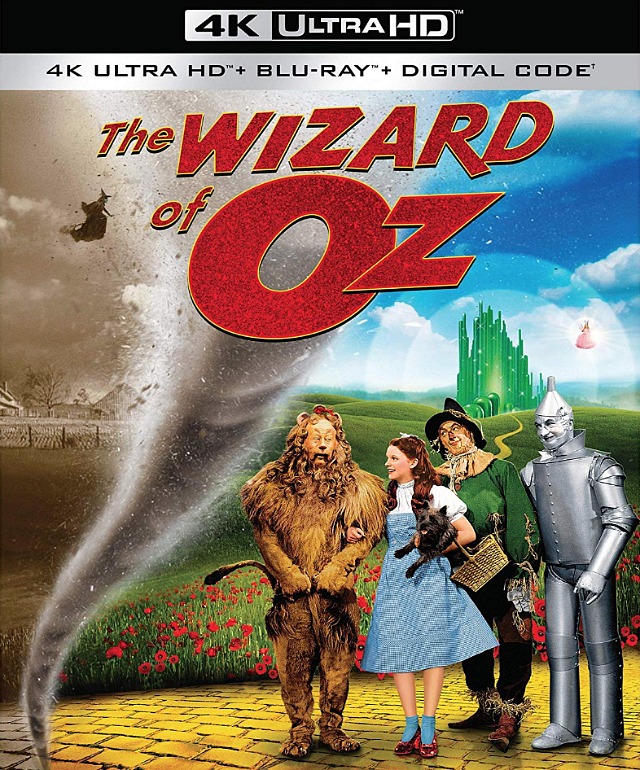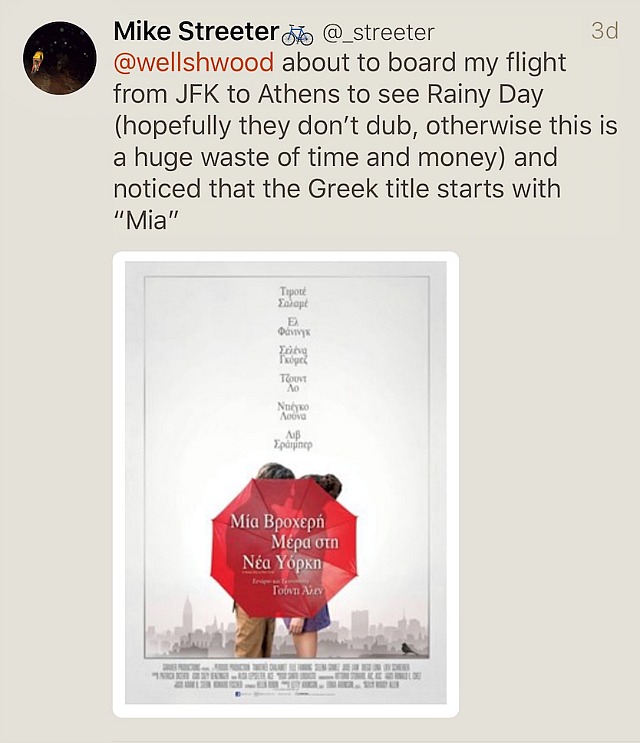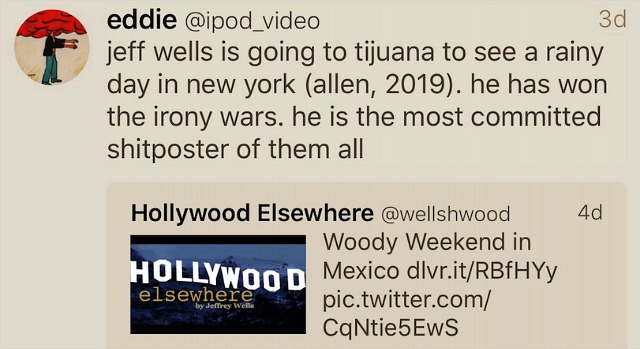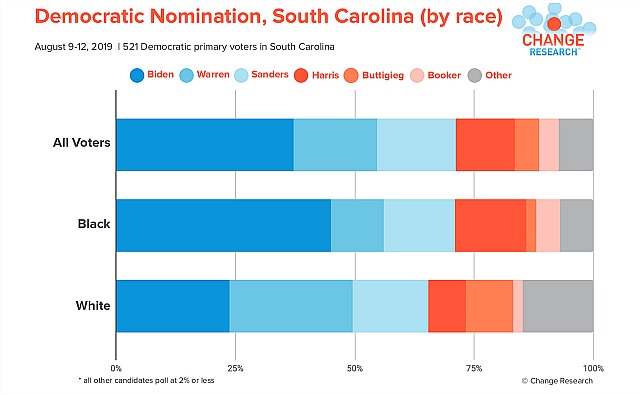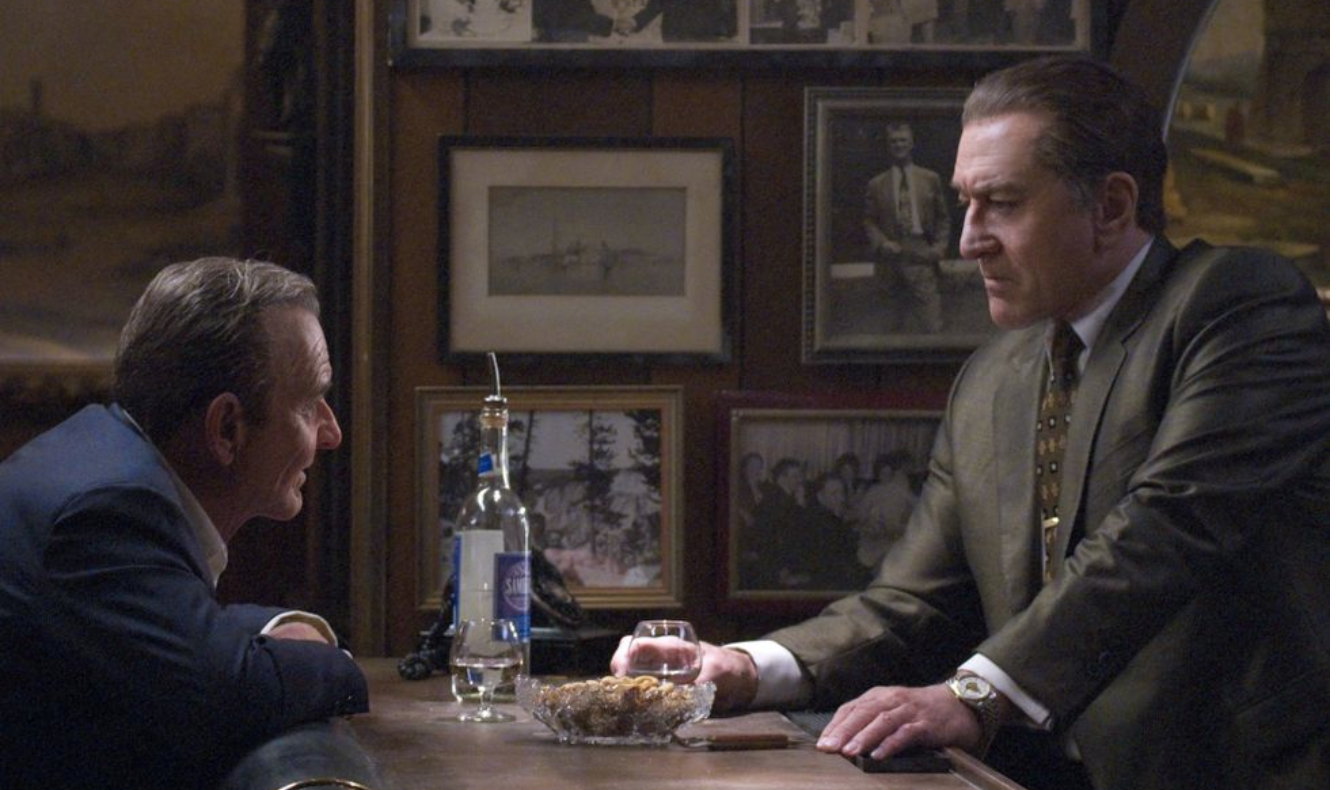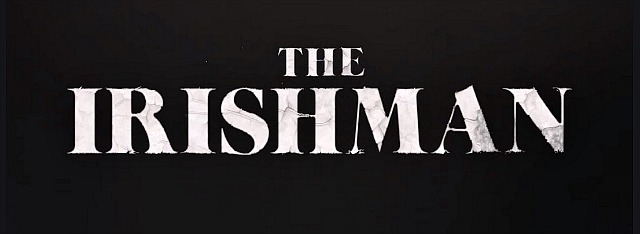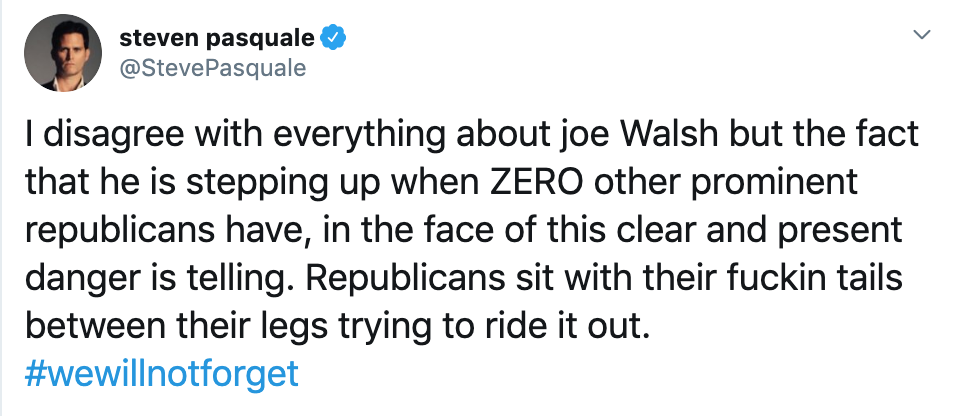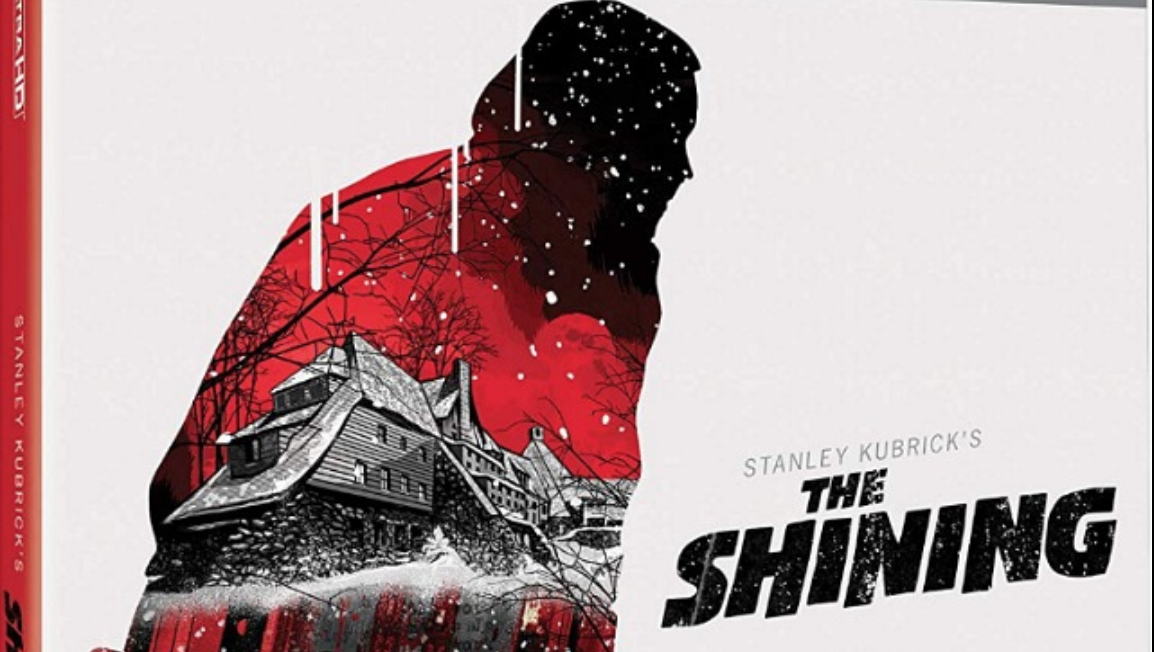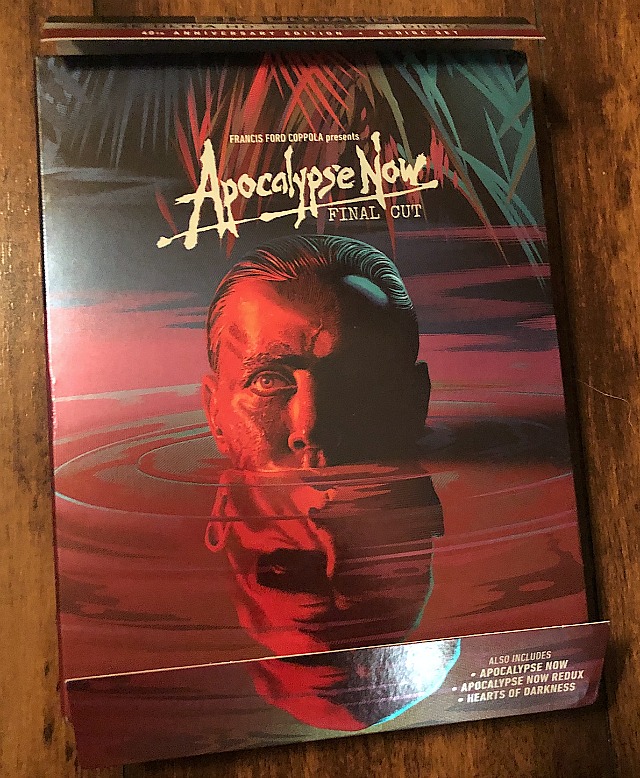Variety‘s Jessica Kiang and The Hollywood Reporter‘s Jordan Mintzer have posted reviews of Woody Allen‘s A Rainy Day in New York. As you might expect, the judgments are on the hand-wringing side.
They’re both basically saying that while Allen’s film is watchable and occasionally diverting here and there, it’s a relic of another time. It’s a nimbly plotted, present-tense story set in a well-heeled, tweed-jacket Manhattan but abounding in mindsets, attitudes and references that could have arguably been criticized as out of step with the times even a half-century ago — weirdly old-fashioned in almost a time machine-like way.
Which, of course, is a familiar complaint. And especially regrettable because the problem could probably be arrested or perhaps even remedied if Allen wanted to change his modus operandi.
From my capsule review of Melinda and Melinda, posted 14 and 1/2 years ago: “It’s not one of his very best, and he’ll probably never get back into Manhattan or Crimes and Misdemeanor-land until he hooks up with a co-writer, preferably someone a good 25 years younger. Allen is almost 70 and he just isn’t getting the world as sharply as he used to. He needs a younger guy (or woman) to challenge him and give his scripts some topical zippity-doo-dah, and that’s not a tough pill to swallow. He partnered with Marshall Brickman on Annie Hall and with Douglas McGrath on Bullets over Broadway, so it’s not like this is a new concept.”
Kiang’s expansive, nimbly-phrased review is a slightly better read than Mintzer’s, IMHO.
And at the risk of driving HE readers nuts by hitting the same piano key over and over, Mintzer needs to be reminded that the Moses Farrow essay (“A Son Speaks Out“) is the testimony to consider in assessing Woody’s guilt or innocence in the wake of Dylan Farrow’s repeated accusation of molestation when she was 7 years old, in 1992. Moses, Moses, Moses…what will it take?
Kiang’s review says she saw A Rainy Day in Manhattan on Sunday, 8.25 at “Kinpolis, Poznan, Poland” — a presumed reference to one of two Cinema City Kinepolis entertainment plexes in Poznan, which is Poland’s fifth-largest city. It’s located 240 kilometers (150 miles) east of Berlin.
Is Hollywood Elsewhere still determined to catch Allen’s film in Tijuana on 10.25? Kind of, yeah. Perhaps not so much over the film’s anticipated pleasures as an excuse to re-visit Mexico. I’m actually thinking of taking the Pacific Surfliner down to San Diego and then the San Diego Trolley to the border.



